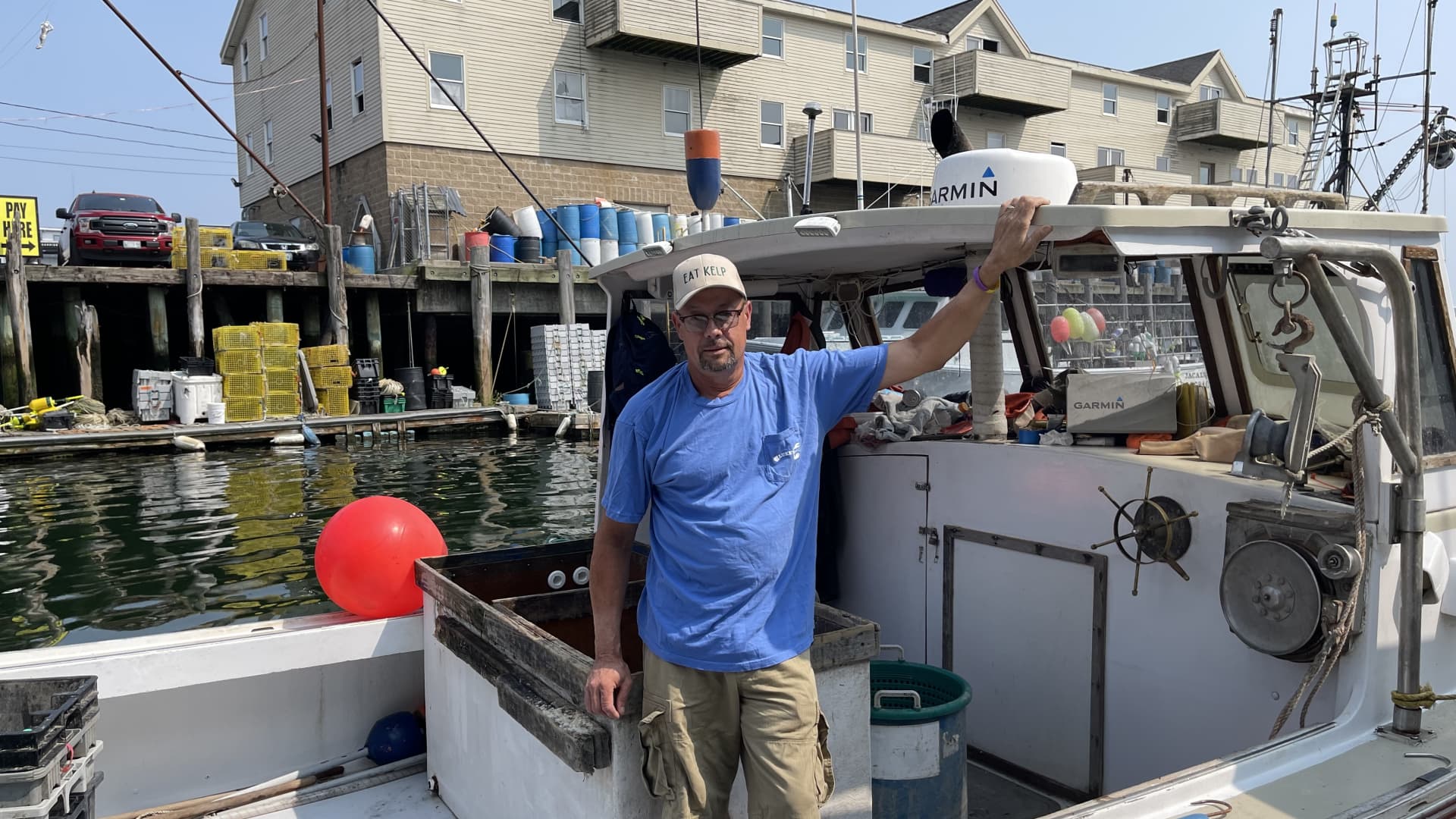Lobsters have long been a staple of the Maine economy, worth roughly $388 million last year alone, but climate change is putting the catch at risk. Now lobstermen and women, along with local entrepreneurs, are turning to a new and potentially even more lucrative staple: Seaweed.
Roughly 90% of seaweed is currently grown overseas, but the U.S. seaweed market is expected to grow to over $5 billion over the next six years, according to research and data provider Fact.MR. Seaweed is most commonly used in foods and supplements, but it has recently branched out to cosmetics, clothing and bio-plastics. Seaweed is also a natural carbon sink, helping the ocean to absorb excess carbon dioxide from the atmosphere.
Aquaculture in general, and seaweed in particular, is an essential economic driver for the state of Maine.
“In 2018, the entire country produced around 30,000 pounds of line-grown seaweed. So that’s nothing. Last year. We landed a million pounds of seaweed just here in Maine, and it was all seaweed grown by fishermen in their offseason as a diversification strategy,” said Bri Warner, CEO of Maine-based startup Atlantic Sea Farms, now the largest producer of farmed seaweed in the nation.
The Gulf of Maine’s waters are heating faster than nearly every other ocean in the world because of climate change. As a result, the survival rate of lobster eggs laid off the southern coast is dropping, moving the lobster catch north and leaving some lobstermen in a pinch.
Dozens are now becoming kelp farmers as a way to diversify. Atlantic Sea Farms works with 27 lobstermen up and down the coast. They seed in the fall and harvest in the spring which allows them to lobster in the summer
“We’re growing it without any inputs, no pesticides, no arable lands, no fresh water, no inputs. Mother nature is the kelp farmer, and what we’re doing is we’re providing seeds to our partner farmers,” Warner said.
Maine native Steve Train has been a lobsterman for about 40 years, but those years may be numbered. After delivering his lobsters to national chain Luke’s Lobsters during the season, he turns to kelp farming.
“If we have something like kelp to harvest, on top of all the other benefits of the health and all the other benefits of the carbon, to significantly help our income, that’s huge,” said Train, who is working with Atlantic Sea Farms.
An international “Seagriculture” conference held in Portland, Maine, this week drew the likes of Toyota and Procter & Gamble, as dozens of seaweed producers, scientists and innovators discussed potential new opportunities.
“Sustainable product and packaging solutions are a key area of interest and innovation for Gillette,” Procter & Gamble said to CNBC in a statement. The company is attending the conference to better understand how new materials such as seaweed could work as a future material for use in their products and packaging.
Warner said she sees seaweed as a massive opportunity for both Maine and the planet.
“Depending on if you’re in a Kroger or Whole Foods, it’s about 16 aisles. Fifteen-and-three-quarters of them have no seaweed, and it is the most climate-friendly food on the planet. It’s helping fishermen diversify. We need to tackle that other fifteen-and-three-quarters aisles,” she said.

